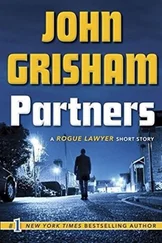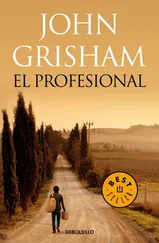John Grisham - A time to kill
Здесь есть возможность читать онлайн «John Grisham - A time to kill» весь текст электронной книги совершенно бесплатно (целиком полную версию без сокращений). В некоторых случаях можно слушать аудио, скачать через торрент в формате fb2 и присутствует краткое содержание. Жанр: Детектив, на английском языке. Описание произведения, (предисловие) а так же отзывы посетителей доступны на портале библиотеки ЛибКат.
- Название:A time to kill
- Автор:
- Жанр:
- Год:неизвестен
- ISBN:нет данных
- Рейтинг книги:3 / 5. Голосов: 2
-
Избранное:Добавить в избранное
- Отзывы:
-
Ваша оценка:
- 60
- 1
- 2
- 3
- 4
- 5
A time to kill: краткое содержание, описание и аннотация
Предлагаем к чтению аннотацию, описание, краткое содержание или предисловие (зависит от того, что написал сам автор книги «A time to kill»). Если вы не нашли необходимую информацию о книге — напишите в комментариях, мы постараемся отыскать её.
A time to kill — читать онлайн бесплатно полную книгу (весь текст) целиком
Ниже представлен текст книги, разбитый по страницам. Система сохранения места последней прочитанной страницы, позволяет с удобством читать онлайн бесплатно книгу «A time to kill», без необходимости каждый раз заново искать на чём Вы остановились. Поставьте закладку, и сможете в любой момент перейти на страницу, на которой закончили чтение.
Интервал:
Закладка:
In Clanton, his name was Hinky Myrick, age sixteen. He waited nervously in the rotunda until Noose broke for lunch, then moved past the deputies and entered the courtroom. Seating was so precious that almost none of the spectators left for lunch. Some would stand, glare at their neighbors, point at their seats and make sure everybody knew it was theirs for the day, then leave for the rest room. But most of them sat in their highly treasured spaces on the pews, and suffered through lunch.
Hinky could smell opportunity. He could sense people in need. On Thursday, just as he had on Wednesday, he rolled a shopping cart down the aisle to the front of the courtroom. It was filled with a wide assortment of sandwiches and plate lunches in plastic containers. He began yelling toward the far end of the rows, then passing food down to his customers. He worked his way slowly toward the rear of the courtroom. He was a vicious scalper. A tuna salad on white bread went for two dollars; his cost, eighty cents. A plate lunch of cold chicken with a few peas went for three dollars; his cost, a buck twenty-five. A canned soft drink was one-fifty. But they gladly paid his prices and kept their seats. He sold out before he reached the fourth row from the front, and began taking orders from the rest of the courtroom. Hinky was the man of the hour.
With a fistful of orders, he raced from the courthouse, across the lawn, through the crowd of blacks, across Caffey Street and into Claude's. He ran to the kitchen, shoved a twenty-dollar bill at the cook and handed him the orders. He waited and watched his watch. The cook moved slowly. Hinky gave him another twenty.
The trial ushered a wave of prosperity Claude naa never dreamed of. Breakfast and lunch in his small cafe became happenings as demand greatly exceeded the number of chairs and the hungry lined the sidewalk, waiting in the heat and haze for a table. After the lunch recess on Monday, he had dashed around Clanton buying every folding card table and matching chair set he could find. At lunch the aisles disappeared, forcing his waitresses to maneuver nimbly among and between the rows of people, virtually all of whom were black.
The trial was the only topic of conversation. On Wednesday, the composition of the jury had been hotly condemned. By Thursday, the talk centered on the growing dislike for the prosecutor.
"I hear tell he wants to run for governor."
"He Democrat or Republican?"
"Democrat."
"He can't win without the black vote, not in this state."
"Yeah, and he ain't likely to get much after this trial."
"I hope he tries."
"He acts more like a Republican."
In pretrial Clanton, the noon hour began ten minutes before twelve when the young, tanned, pretty, coolly dressed secretaries from the banks, law offices, insurance agencies, and courthouse left their desks and took to the sidewalks. During lunch they ran errands around the square. They went to the post office. They did their banking. They shopped. Most of them bought their food at the Chinese Deli and ate on the park benches under the shade trees around the courthouse. They met friends and gossiped. At noon the gazebo in front of the courthouse attracted more beautiful women than the Miss Mississippi pageant. It was an unwritten rule in Clanton that an office girl on the square got a headstart on lunch and did not have to return until one. The men followed at twelve, and watched the girls.
But the trial changed things. The shade trees around the courthouse were in a combat zone. The cafes were full from eleven to one with soldiers and strangers who couldn't get seats in the courtroom. The Chinese Deli was packed with foreigners. The office girls ran their errands and ate at their desks.
At the Tea Shoppe the bankers and other white collars discussed the trial more in terms of its publicity and how the town was being perceived. Of particular concern was the Klan. Not a single customer knew anyone connected with the Klan, and it had long been forgotten in north Mississippi. But the vultures loved the white robes, and as far as the outside world knew, Clanton, Mississippi, was the home of the Ku Klux Klan. They hated the Klan for being there. They cussed the press for keeping them there.
For lunch Thursday, the Coffee Shop offered the daily special of country-fried pork chops, turnip greens, and either candied yams, creamed corn, or fried okra. Dell served the specials to a packed house that was evenly divided among locals, foreigners, and soldiers. The unwritten but firmly established rule of not speaking to anyone with a beard or funny accent was strictly enforced, and for a friendly people it was awkward not to smile and carry on with those from the outside. A tight-lipped arrogance had long since replaced the warm reception given to the visitors in the first few days after the shootings. Too many of the press hounds had betrayed their hosts and printed unkind, unflattering, and unfair words about the county and its people. It was amazing how they could arrive in packs from all over and within twenty-four hours become experts on a place they had never heard of and a people they had never met.
The locals had watched them as they scrambled like idiots around the square chasing the sheriff, the prosecutor, the defense lawyer, or anybody who might know anything. They watched them wait at the rear of the courthouse like hungry wolves to pounce on the defendant, who was invariably surrounded by cops, and who invariably ignored them as they yelled the same ridiculous questions at him. The locals watched with distaste as they kept their cameras on the Kluxers and the rowdier blacks, always searching for the most radical elements, and then making those elements appear to be the norm.
They watched them, and they hated them.
"What's that orange crap all over her face?" Tim Nunley asked, looking at a reporter sitting in a booth by the window. Jack Jones crunched on his okra and studied the orange face.
"I think it's something they use for the cameras. Makes her face look white on TV."
"But it's already white."
"I know, but it don't look white on TV unless it's painted orange."
Nunley was not convinced. "Then what do the niggers use on TV?" he asked.
No one could answer.
"Did you see her on TV last night?" asked Jack Jones.
"Nope. Where's she from?"
"Channel Four, Memphis. Last night she interviewed Cobb's mother, and of course she kept on pushing till the old woman broke down. All they showed on TV was the cryin'. It was sickenin'. Night before she had some Klansmen from Ohio talkin' about what we need here in Mississippi. She's the worst."
The State finished its case against Carl Lee Thursday afternoon. After lunch Buckley put Murphy on the stand. It was gut-wrenching, nerve-wracking testimony as the poor little man stuttered uncontrollably for an hour.
"Calm down, Mr. Murphy," Buckley said a hundred times.
He would nod, and take a drink of water. He nodded affirmatively and shook negatively as much as possible, but the court reporter had an awful time picking up the nods and shakes.
"I didn't get that," she would say, her back to the witness stand. So he would try to answer and get hung, usually on a hard consonant like a "P" or "T." He would blurt out something, then stutter and spit incoherently.
"I didn't get that," she would say helplessly when he finished. Buckley would sigh. The jurors rocked furiously. Half the spectators chewed their fingernails.
"Could you repeat that?" Buckley would say with as much .patience as he could find.
"I'm s-s-s-s-s-s-s-s-sorry," he would say frequently. He was pitiful.
Through it all, it was determined that he had been drinking a Coke on the rear stairs, facing the stairs where
the boys were killed. He had noticed a black man peeking out of a small closet some forty feet away. But he didn't think much about it. Then when the boys came down, the black man just stepped out and opened fire, screaming and laughing. When he stopped shooting, he threw down the. gun and took off. Yes, that was him, sitting right there. The black one.
Читать дальшеИнтервал:
Закладка:
Похожие книги на «A time to kill»
Представляем Вашему вниманию похожие книги на «A time to kill» списком для выбора. Мы отобрали схожую по названию и смыслу литературу в надежде предоставить читателям больше вариантов отыскать новые, интересные, ещё непрочитанные произведения.
Обсуждение, отзывы о книге «A time to kill» и просто собственные мнения читателей. Оставьте ваши комментарии, напишите, что Вы думаете о произведении, его смысле или главных героях. Укажите что конкретно понравилось, а что нет, и почему Вы так считаете.










